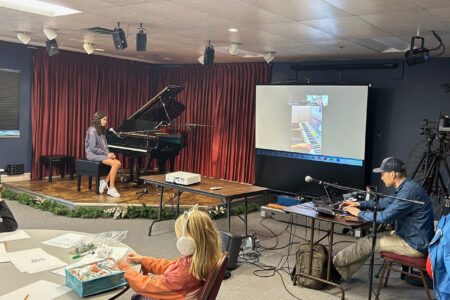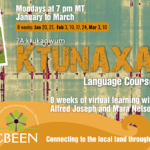Intelligence, fact, politics, wisdom, conscious machines and historical lessons
History does not repeat. People do. — Voltaire
As an historian, I am not supposed to say that people often cannot learn from history. Yet that is what I wrote in my last column.
However, I still see much value in studying history for we-the-people who want to have some control over the politicians who have been elected to govern us. But studying in a particular way, not for facts but for wisdom.
I have been reflecting on history and what good it will do those who know it. I am teaching for Learning In Retirement, and my students challenge me to say why it matters to know history. The subject is ancient Israel. Does it matter whether we know dry historical facts? Well, it matters that we “think historically.”
I did my annual Remembrance Day protest for peace November 11, and many people this year took notice because the CBC Radio had a feature about it on The Sunday Edition with Michael Enright. That protest and the conversations it has provoked means I have to summon up a lot of knowledge of history, of Canada and its wars and foreign policy, to make my case–that I am not showing disrespect by protesting at the Remembrance Day ceremonies in Nelson.
Does knowing a fair bit about our military and political history give me things worth saying when I am challenged over my unpopular peace activism? Yes. Is my well-rehearsed array of fact from history and politics of use? Of course. Can I change minds? Definitely maybe. Fact changes minds, unpredictably.
History, I have come to believe, is a study that will cultivate wisdom. No one learns how to be a statesman or stateswoman by study of what historical leaders did–not by that study alone. But one must study some biographies, read histories, to get a feel for human beings’ actual behaviours in the past, not as behaviours observed by psychologists in controlled experiment. History is a grand experiment of humans living, but not a controlled experiment. Knowing fact is not possessing wisdom. Rulers need both.
Here is a parable about fact and consciousness: recall the first Star Trek film, when an ancient terran satellite is returning to the planet, with awesome technical weaponry on full war alert, looking for The Creator and threatening humanity with punishment — if we do not bring The Creator to the machine-intelligence as it orbits Earth. It turns out this machine is one of the earliest NASA probes, come back to Earth after millennia, touring the galaxy, “amassing data.” Mr. Spock solves the riddle. The machine has “acquired so much knowledge” that over centuries of time and data-storage “it attained consciousness.”
The Creator is of course the builder(s) of the machine, engineers at NASA, and the crisis is resolved by explaining its history to the machine. Gene Rodenberry, writer/creator of Star Trek, believed that data and knowledge create consciousness, and I’m sure he’s not alone. But, I demur; he does not persuade me.
If merely having stupendous amounts of information is sufficient to generate consciousness, then our computers are already poised to join humans as conscious beings. AI (artificial intelligence) is advancing at astonishing speed, but I am not sure this is consciousness. How did the amassing of fact become intelligence? Is that even true? I will come back to that. But let us stay with fact and opinion for now.
Humans are not subject to changing their opinion just because they have acquired facts not known before. So the hope that we will grow wise as a species, based upon our accumulation of factual knowledge, is feeble. I always liked the proverb, “The fox knows many things; the porcupine knows one big thing well.” Between the two, I would not argue which is wiser. Not “more intelligent,” but wiser. So artificial intelligence can “know” more than we, yet wisdom isn’t part of its repertoire as it may be for us.
It is a commonplace observation that today people have very short memories and attention spans, and politicians rely on that. They get away with actions that ought to carry consequences, but don’t. Simply running through the records of politicians from “fact-checking” experts does not change much in public opinion. People make decisions based on a lot more than “just the facts, ma’am.” “Truth” is not “fact”, these words are not synonyms — and humans know that, whereas AI might not/probably won’t.
So, does knowing history, and learning a quality, wisdom, from that study, lead to better government? No. Some truths about humans are not found in historical records. “Experience” and “experiment” are related in language but not in the human condition. Humans are generally drowned in matter, not afloat over it. Humans do not invest power in the wise; we bestow it on the egotistic. Government is a materialist phenomenon; living in materiality, we need government over matter. Wise humans would not let stupid, unconscious leaders rule – would they? Maybe we would. By definition, rulers are motivated to control others. Such people will make poor choices more often than good ones. They lack judgment. Judgment does not proceed from fact. Acting at the right time demands non-rational intuition, judicious timing. Knowing when not to choose, but to wait, needs wisdom. And, if you rule others, you should love them.
I observe politicians absolutely counting on the amnesia of voters at election time. You cannot embarrass the Conservative Party or Mr. Harper by reminding them of past promises, past speeches in Opposition, or past ethical pronouncements when the Reform Party was staking out new ground for conservatism.
There is a saying that “people get the government they deserve.” I agree. How does one deserve good governing? By governing one’s own self, well. By knowing oneself and not confusing that self with the materialist ego. Ego is a necessary part of the human condition, the condition of a spiritual being experiencing materiality. But ego must be the servant, not master, of our life. Ego must be watched vigilantly to restrain it to its proper function, else it will pretend to be the whole when it’s only a part.
Identification with matter leads to the loss of the conscious ingredient giving life meaning. The quality of wisdom is not in possession of reams of facts. It is in the diligent search of things that must be known, and the capacity to learn things which must be known —before choices are made–that amounts to wisdom. Wisdom means truth, not fact. Consciousness is spiritual/material equilibrium and compassion.
Lastly, the question of intelligence possessed by the electronic beings we’re bringing to perfection, our computerized mind-machines. The “human rights” of A.I., the rights of sentient life forms, are seriously explored by philosophers of ethics. The chain of reasoning here is: data retrieval + problem-solving = intelligence = sentience = human-like being = rights-bearing creature. Will such rights emerge for A.I.?
No. Humans are going to integrate machinery into our brains and neurology, to enhance our capacities and have the advantages of speed and accuracy in use of fact and logic that electronic machinery enjoys. It is called BCI, for brain-computer interface. Our thoughts will operate systems of machinery implanted in our flesh. We will access machine intelligence by added material parts foreign to our biology. We will be “Borg” in the Star Trek view — and we will still not make better choices for who rules over us. AI will never be wise, merely smart. With enhancements, humans might become smarter. But “more conscious”, due to machines? No. Rule over others doesn’t improve us; it’s contradictory. Conscious humans don’t want it.
If improving consciousness is our aim, fact and intelligence are less fertile for its growth than love is. But that is a topic for books and teachings, as the record of humanity’s great souls (mahatma) demonstrates.
Charles Jeanes is a Nelson-based writer. The last edition of the Arc Of The Cognizant can be found here.

























